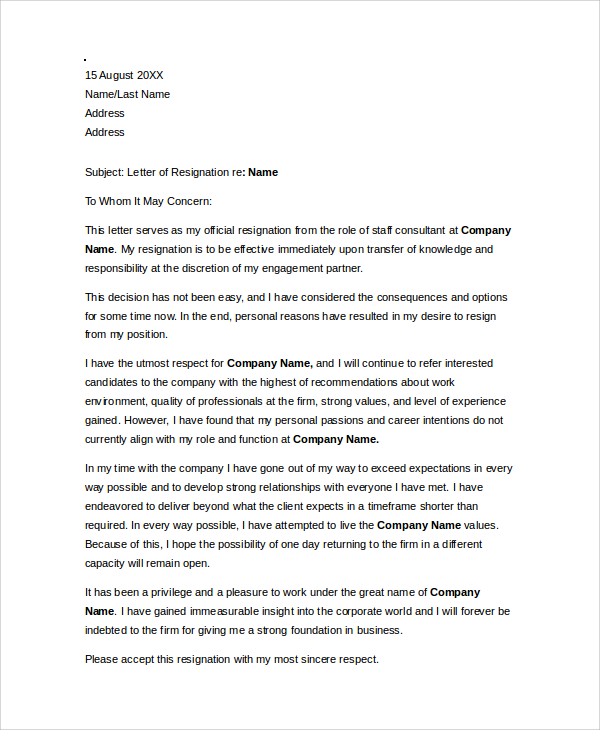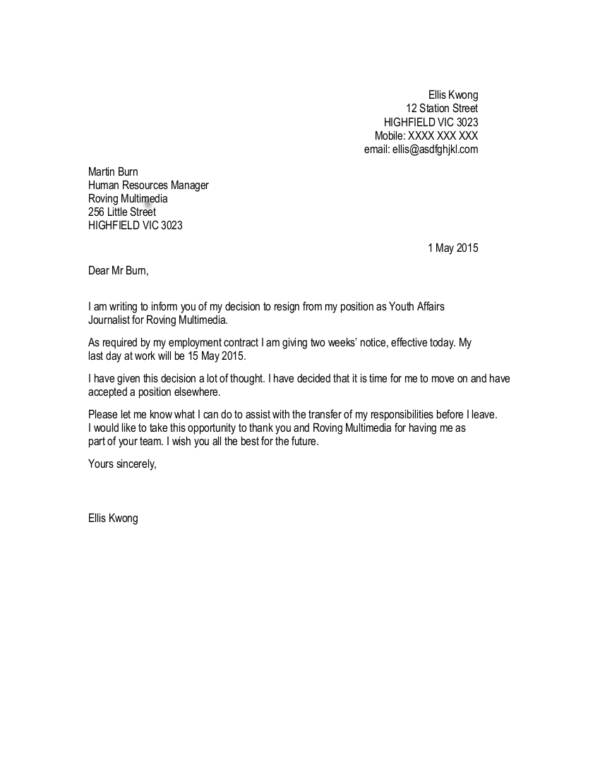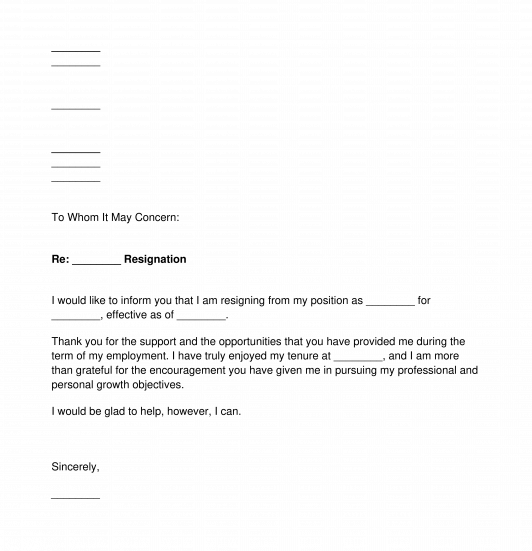



However, it is essential that your resignation letter does not have any ambiguous language or leave employers wondering what exactly you are trying to say. It can seem a bit blunt and out there to start a letter off with such a statement. If you’re not a fan of confrontation or you’re having a hard time deciding to quit your job, it may be difficult for you to come right out and say that you’re leaving. It is important to keep your statement courteous and kind. Not to mention, spending too much time on a resignation letter is simply a waste of your time! There’s no need for it, and you will be leaving your job soon anyways, so don’t try to get caught up in the details of it.

If you have anything else to discuss with your employer, manager, or coworkers, do so in person or in another email or letter. Keep it brief and focused on the topic of your quitting. A resignation should not be any longer than one page. Stick to the following steps and don’t stress out about elaboration too much.Ī resignation letter is more about offering your employer a concrete notice of quitting and giving them the exact dates that you are leaving. Don’t waste your time writing a massive essay. Keep in mind that the resignation letter will be appreciated and remembered, but it will also be stored away in a filing cabinet and probably never looked at again. Keeping your resignation letter short and to the point will save you and your employer a lot of time. It isn’t the place to include a drawn-out message to any superiors or to ramble on for many pages. Resignation letters are a professional document, indication your notice of quitting a position and offering some explanation behind your choice to leave the position. While writing a resignation letter is important for many reasons, it certainly isn’t a document that you need to pour your heart and soul into. Don’t waste your time if you are not satisfied with your employer.


 0 kommentar(er)
0 kommentar(er)
